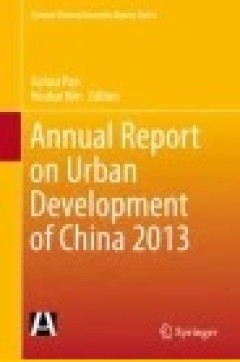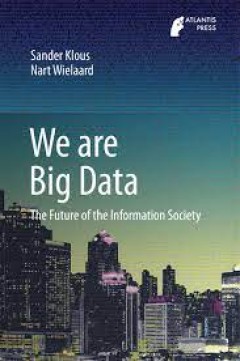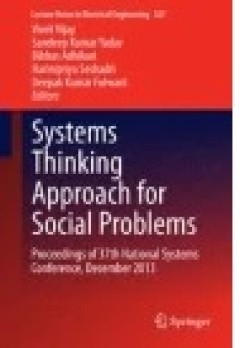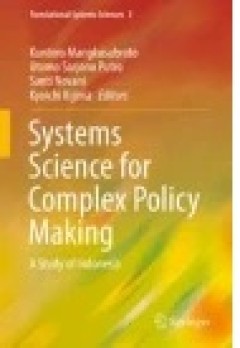Filter by

University Governance in (Post-)Conflict Southern Sudan 2005–2011 The Nexu…
Few studies have looked into the governance of universities in societies affected by armed conflicts, because they are either meant for practitioners or focused on the role of universities for peace and development. Akiiki Babyesiza offers an in-depth analysis of the relationship between state, higher education, and society in a multicultural and multi-religious post-conflict setting and uses e…
- Edition
- -
- ISBN/ISSN
- 978-3-658-08145-4
- Collation
- -
- Series Title
- -
- Call Number
- -

The Paradox of Knowledge-Intensive Entrepreneurship in Low-Tech Industries
This book presents the first multidimensional investigation of KIE in the context of low-tech industries and gives insights in paradox conditions and specific mechanisms, using the example of the German textile industry. Therefore, the author solves conceptual inconsistencies and develops an alternative framework referring to systemic concepts of sectoral innovation systems and KIE as well as t…
- Edition
- 1
- ISBN/ISSN
- 978-3-658-10937-0
- Collation
- -
- Series Title
- -
- Call Number
- XVIII, 296, 21 b/w illustrations

The Value of Wellness in the Workplace A Perspective of the Employee-Organis…
This book examines the links between employee-organisation relationships, work wellness and the impact thereof on the labour market from a South African perspective. By employing this focus, the book explains the role of the employment relationship and the psychological contract in improving work wellness. To do so, it reviews the establishment and management of contracts in the context of labo…
- Edition
- -
- ISBN/ISSN
- 978-981-287-402-3
- Collation
- -
- Series Title
- -
- Call Number
- -

The Socioeconomic Evolution of the European Union Exploring the Electronic F…
This volume explores the role of territory in the creation, maintenance and extension of a new type of frontier, the electronic frontier, from a social and economic point of view. It departs from the earlier concepts of borders – state, social, economic, ethnic, religious, etc. – to investigate the fluidity of borders and their shift towards an axis-based paradigm within the free-movement …
- Edition
- -
- ISBN/ISSN
- 978-3-319-40304-5
- Collation
- -
- Series Title
- -
- Call Number
- -

On Moral Capital
This book promotes the original concept of “Moral Capital” as the key to analyzing the nature and function of morality in economic activities. The book is divided into three major sections. In the first, the author argues that the logical connections between morality and economy and those between morality and profit provide a concrete theoretical basis for the concept of moral capital. In t…
- Edition
- 1
- ISBN/ISSN
- 978-3-662-45543-2
- Collation
- XI, 266
- Series Title
- -
- Call Number
- -

Annual Report on Urban Development of China 2013
This book focuses on China’s urban development. In China, the process of allowing more rural migrants to become registered city residents in urban areas remains stagnant despite its importance to the Chinese government and the existence of a national consensus about it. Cities can compulsorily purchase land from farmers at low or even no costs, and most farmers, whose families have relied on …
- Edition
- Ed. 1
- ISBN/ISSN
- 978-3-662-46324-6
- Collation
- XIII, 288
- Series Title
- Current Chinese Economic Report Series
- Call Number
- 330 ANN a

We are Big Data The Future of the Information Society
This book demonstrates the inevitability of a continuously growing role of data in our society and it stresses that this role does not need to be threatening: to the contrary, collection and analysis of data can help us prevent traffic jams, suppress epidemics, or produce tailor made medicine. The authors sketch the contours of a new information society, in which everything will be measured fro…
- Edition
- -
- ISBN/ISSN
- 978-94-6239-183-3
- Collation
- XIX, 199
- Series Title
- -
- Call Number
- -

University Governance in (Post-)Conflict Southern Sudan 2005–2011 The Nexu…
Few studies have looked into the governance of universities in societies affected by armed conflicts, because they are either meant for practitioners or focused on the role of universities for peace and development. Akiiki Babyesiza offers an in-depth analysis of the relationship between state, higher education, and society in a multicultural and multi-religious post-conflict setting and uses e…
- Edition
- -
- ISBN/ISSN
- 978-3-658-08145-4
- Collation
- 2 b/w illustrations
- Series Title
- -
- Call Number
- -

Systems Thinking Approach For Social Problems
The book is a collection of peer-reviewed scientific papers submitted by active researchers in the 37th National System Conference (NSC 2013). NSC is an annual event of the Systems Society of India (SSI), primarily oriented to strengthen the systems movement and its applications for the welfare of humanity. A galaxy of academicians, professionals, scientists, statesman and researchers from diff…
- Edition
- -
- ISBN/ISSN
- 978-81-322-2141-8
- Collation
- XVI, 430
- Series Title
- Lecture Notes in Electrical Engineering
- Call Number
- -

Systems Science for Complex Policy Making
This volume applies a systems science perspective to complex policy making dynamics, using the case of Indonesia to illustrate the concepts. Indonesia is an archipelago with a high heterogeneity. Her people consist of 1,340 tribes who are scattered over 17,508 islands. Every region has different natural strengths and conditions. In the national development process all regions depend on one anot…
- Edition
- -
- ISBN/ISSN
- 978-4-431-55273-4
- Collation
- VII, 108
- Series Title
- Translational Systems Sciences
- Call Number
- -
 Computer Science, Information & General Works
Computer Science, Information & General Works  Philosophy & Psychology
Philosophy & Psychology  Religion
Religion  Social Sciences
Social Sciences  Language
Language  Pure Science
Pure Science  Applied Sciences
Applied Sciences  Art & Recreation
Art & Recreation  Literature
Literature  History & Geography
History & Geography